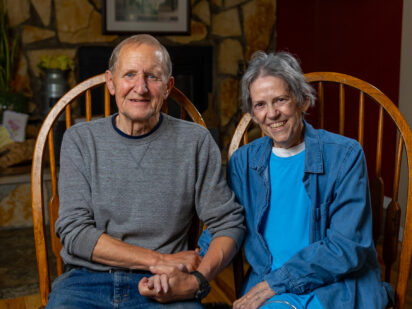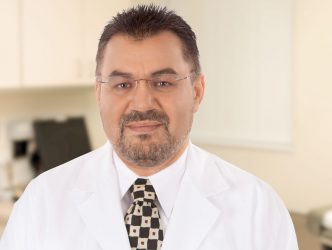Tenley Johnson bravely fought breast cancer for many years. When she was initially diagnosed in 1991, she had a double mastectomy and underwent chemotherapy for several months.
After things were looking positive while her cancer was in remission for a 19-year period, it unfortunately returned roughly 12 years ago. After the cancer returned, it was brought under control with radiation. As difficult as it was, Tenley tried to remain positive and looked at things as a journey as opposed to a battle.
“It wasn’t a battle, it was a journey for me with chapters one and two, and soon to be chapter three,” Tenley said. She added, “All of my babies were in school, I wanted to see them grow up. I just kept faith.”
Two years ago, she was diagnosed with end-stage metastatic breast cancer. The course of treatments she received after the diagnosis was very hard on her both mentally and physically.
Treatments included newer cancer drugs, which worked only for a while. Eventually, she began receiving infusions, which caused her to lose her appetite and ability to take in adequate fluids. She felt she was fading fast, and the infusions were making her feel weaker. “I couldn’t take the infusions any longer. I couldn’t walk or eat, and I felt like I was done.”
It was a trip to the emergency room and admission to Trinity Hospital this past January that brought her in touch with Trinity Health Home Health and Hospice. The home health nurse suggested she might be a candidate and would benefit from hospice services. Tenley agreed but was hesitant to go on hospice right away.
After conversations with her medical provider and her family, Tenley decided hospice was a good idea. The news that she was going on hospice, however, made for a difficult time with those closest to her. “I wasn’t scared of dying. I was afraid to bring my family on board with the plan,” Tenley said. She added, “I wasn’t giving up, but I knew I wasn’t going to get better. I was tired and didn’t want to suffer any longer.”
While hospice has a negative connotation, and it feels like the end of the line for many, it proved to be a turning point for Tenley. Since hospice care started after Easter, her quality of life improved dramatically. She got off the infusions and between hospice nurses and her medical provider, they straightened out her medications.
“They were wonderful. They worked with me to get my medications straightened out so I could get my appetite back. I’ve been so blessed and thankful that they straightened out my medications.”
Previously, she had been too weak to shower, but a hospice worker helped her shower three times a week. She was also able to get out of bed, and her voice became strong enough so she could have conversations with her family and others.
“After I went on hospice, you wouldn’t believe how it made me feel. It has put my family at rest knowing there is a team here to help me with bathing and the things I can’t do on my own.”
It was a journey to get to this point because before going on hospice, she felt like she had a weaker voice that people had a hard time understanding, and she felt sicker and sicker with “no life to live.”
Things improved dramatically for Tenley, and her quality of life not only had a positive impact on herself but also on her family and loved ones. “I have lived the best life I could with so many people surrounding me. I’m surrounded by wonderful people who are helping me and my family,” Tenley said.
For those who are debating whether hospice would be a good choice for themselves, Tenley recommends that people should receive hospice care much sooner during their illness.
Tenley lost her courageous battle in October 2024. She felt that her life could have been very different if she had continued with treatment instead of choosing the compassionate support of hospice care.




